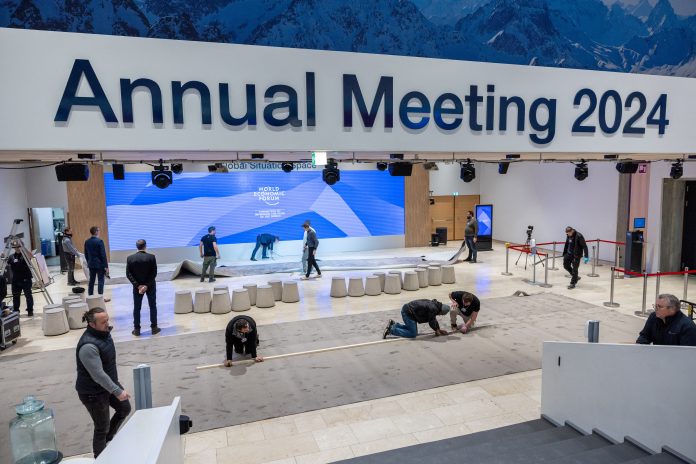Most economists believe that economic activity will slow down significantly in 2024, the World Economic Forum said in a report published on Monday.
The experts named global conflicts and stress caused by prolonged deflation as the reason for the economic slowdown. The report reads:
Global economic prospects remain subdued and fraught with uncertainty. While there are positive developments, such as easing inflationary pressures and advances in the field of artificial intelligence (AI), businesses and policy-makers face persistent headwinds and continued volatility as global economic activity remains slow, financial conditions remain tight and geopolitical rifts and social strains continue to grow.
According to a survey of 30 leading economists, 56 per cent of them expect the global economy to weaken. Economists say Europe is the worst off, with 77 per cent saying a slowdown is likely.
Just under half, 43 per cent, say the same about the US economy, while 13 per cent also expect high inflation in the country this year. The survey results show a similarly gloomy outlook as the World Bank’s 2024 report released earlier this month.
The World Bank predicts that global economic growth will slow for the third consecutive year in 2024, with the US economy slipping to 1.6 per cent, down from 2.5 per cent in 2023. The report also predicts Europe will have a more challenging year.
In the WEF report released on Monday, economists did show some optimism about inflation. Few expect high global inflation amid positive signs that deflationary efforts by the Federal Reserve and foreign banking systems are working.
US inflation fell to 3.1 percent last month, according to the Labour Department, down from 6.4 percent last January.
Economists are generally negative. Nearly 90 per cent of those surveyed said volatility in the global economy will increase over the next three years, and 80 per cent predicted more volatility in stock markets.
However, about seven in ten chief economists expect the pace of geo-economic fragmentation to accelerate this year. Most of them believe that over the next three years, geopolitics will contribute to increased volatility in the global economy (87%) and stock markets (80%), increased localisation (86%), stronger geo-economic blocs (80%) and a widening North-South divide (57%).
While governments are increasingly experimenting with industrial policy instruments, experts are virtually unanimous that these policies will remain largely uncoordinated across countries. While two-thirds of chief economists expect industrial policy to create new pockets of economic growth and vital new industries, most also warn of rising fiscal pressures (79%) and divergence between high- and low-income countries (66%). The WEF said:
Although the results reveal signs of cautious optimism, including easing of inflationary pressures and AI-enabled productivity benefits, growth momentum remains tepid, and a majority expect the pace of geoeconomic fragmentation to accelerate this year.
The World Economic Forum Annual Meeting 2024, taking place 15-19 January in Davos-Klosters, Switzerland, convenes the world’s foremost leaders under the theme, Rebuilding Trust.
